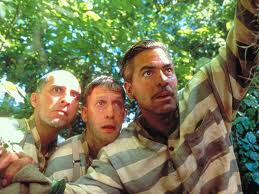Dirty kitchen conditions and violations repeated for several months are among some of the more consistent findings in food safety inspections for Kansas prisons.
 Although the corrections department adheres to Kansas Department of Agriculture food safety guidelines, like restaurants, it doesn’t rely on KDA staff to do the inspections.
Although the corrections department adheres to Kansas Department of Agriculture food safety guidelines, like restaurants, it doesn’t rely on KDA staff to do the inspections.
Instead, both monthly and sporadic audits are conducted by Kansas Department of Corrections employees, some of whom work in the facilities they inspect.
“I hear what you’re saying in terms of looking like it’s all under one DOC umbrella,” said Jeremy Barclay, spokesman for the KDOC. “But we interact with so many different state agencies and branches of government and different divisions within the agency, that it’s pretty secure.”
The inspections cover the 19 months between January 2013 and July 2014. They include seven of the state’s 10 prisons and total 19 facilities, such as satellite units. The KDOC filled the request free of charge, because another entity already had requested the inspections. Inspections weren’t provided for the Topeka, Lansing and Larned juvenile correctional facilities because they weren’t in the original request.
 The nearly 340 inspections show noncompliance and deficiencies month after month at several facilities.
The nearly 340 inspections show noncompliance and deficiencies month after month at several facilities.
The Kansas Juvenile Correctional Facility in Topeka, for example, repeated several mistakes for at least 10 months, including not taking proper temperature logs; not enforcing handwashing and glove use; not having employees and staff restrain hair properly; not keeping accurate chemical logs; and not having inmate staff up to date on food safety training.
Aramark holds the food service contracts in all the prisons, save the KJCF, which switched last October to Trinity Services Group after the service went out for bid. It was awarded a nearly $400,000 contract to work from October 2013 through June 2014.
In each prison, Aramark pays for a manager, an assistant manager and food service supervisors. Under them, are the inmates, Barclay said.
Inmate workers are supposed to be trained and supervised, but 20 inspections show those areas lacking for several months — half of which came from the KJCF.
